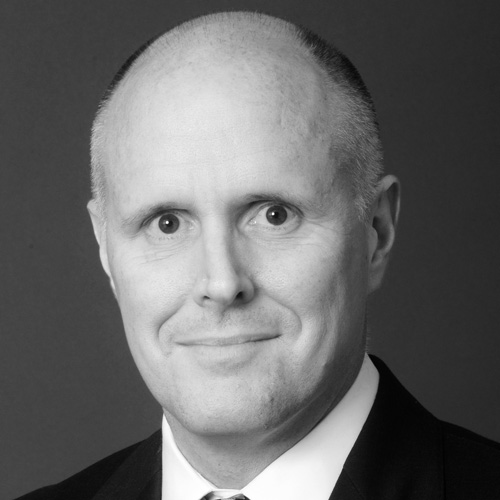Wise: People sometimes resist change. Do you have ways of making change more acceptable or inviting to your people?
Pomerance: Not all change that organizations go through is planned or positive for the company. Even when it is intentional and anticipated, change can have many negative repercussions for employees. It can translate into a skillset becoming obsolete, a work environment imposing new demands that employees are unprepared for, or conflicts arising from competing commitments. There are emotional, rational, and operational aspects to managing change.
For a leader, the emotional aspect starts with continuously listening to people and having one hand on the pulse of the company and another – on the market. This means demonstrating long-term commitment to building relationships and fostering transparency and trust, so that even when change is unplanned or challenging for the business, people feel that they’re in it together for the long haul. It takes courage and integrity to acknowledge that change can be difficult, but there is a sense of community that can emerge when leaders are able to communicate with empathy and authenticity.
From a rational perspective, self-awareness on a personal and organizational level is critical to implementing change successfully. What do we stand for as a company? What are the types of compromises we are willing to make in the interest of our bigger purpose and mission? What are the organizational attributes that we would not change because they are so fundamentally a part of our identity? What are our current market pressures and limitations? These are all important strategic questions that help define the rationale and parameters for change.
On an operational level, employees need the information, tools, and resources to effectively partake in an organizational transformation. This aspect is about employees being logistically enabled to go through a change process, understanding what this means for them, and how it is helping the company grow and improve.
I say the best way to engage the organization in change and overcome resistance is:
- Consistently communicate; why and how the change will impact them
- Employees need to be involved in decisions and actions around the change to feel ownership
- Don’t sugarcoat what’s happening; be transparent, even if you don’t know something
Wise: How do you keep people motivated when conditions are changing so rapidly?
Pomerance: In HR, we speak less of motivation and more of employee engagement. The reason for this is that motivation is very personal and thus difficult to influence by a management practice or organizational initiative. You may be motivated to cure cancer or end world hunger, regardless of the organization that you happen to be working for.
On the other hand, employee engagement can be viewed as a company-specific metric that is highly contingent on the organizational context and group dynamics. Leaders can impact engagement by being attuned to employee needs, removing obstacles, inspiring and helping people find meaning in their work.
If adaptability, trust, and knowing what type of change is good for your company and why, are all already part of the organizational DNA, then people are more likely to be comfortable with changing conditions and accept them as a normal course of business.
The way I motivate people when conditions change so rapidly is:
- Walk the talk: I need to stay motivated myself and demonstrate my enthusiasm for leading change
- Anticipate change by using scenario planning to ensure people know HOW we respond under different conditions: it should never be a surprise
- Communicate what leaders are doing to manage the change
Wise: What are the ultimate criteria for hiring new leaders into your company?
Pomerance: The specific criteria largely depend on the role, but I think it’s important for leaders to have what some experts call “head, heart, and guts”. This notion epitomizes the idea of the holistic leader that has the adaptable acumen to set strategy, the emotional intelligence to connect with others and develop trusting relationships, and the courage to consistently do the right thing based on strong values. These leaders are both transactional and transformational and they’re well-versed in balancing people and business needs in an age of ambiguity. For us at QBE, this also means making sure new leaders represent views that are consistent with our core values and culture.
- They need to be athletes; talent that have potential to play many positions on the team
- They must demonstrate coachability
- They must have courage and perseverance
Wise: Why is succession planning so important? And do you feel like you have a strong one in place?
Pomerance: There is strong evidence that hiring and promoting from within can not only be more efficient in terms of cost and time, but is also often associated with higher success rates. Furthermore, succession planning is an opportunity to tap into existing talent, foster morale, and groom leaders who have already demonstrated commitment to the organization and embodiment of company values.
Succession planning is important because it is a tool to ensure the company can achieve its long term vision: it has talent for today and for tomorrow; which we know is not the same thing. The process keeps us on our toes to identify, validate and develop from within as well as forces us to stay in touch with the external talent market.
We have a very robust succession planning process that helps prevent risk of sudden talent loss, build a robust pipeline and have deep knowledge of the critical roles in the organization and priority talent in the pipeline. Succession planning also ensures we act to retain the highest potential talent across the globe.
Wise: What is the most fun you have at work?
Pomerance: The most fun I have is when I’m juggling lots of balls and feel challenged to concentrate on multiple activities simultaneously. I love to bring order and simplicity to complexity and chaos. I also know that when I see people at their best, I have a sense of peace and centeredness that is hard to explain.
Wise: Is learning important at your organization, and if so, where do you focus?
Pomerance: Our entire culture is based upon a culture of “teach don’t tell”. Leaders are required to go the extra mile to help their teams think for themselves, using the Socratic method to coach people to solutions. Our focus is in the areas that make QBE a unique company; we focus on risk management, underwriting excellence and customer intimacy.
Wise: What was a mistake you made that taught you something valuable?
Pomerance: A simple mistake I made is when I once expressed concerns about the direction of the company and forgot the leadership lesson that I call “the megaphone effect”. When leaders talk, the impact of their voice is like a megaphone; 20 times louder than you think it is….well, needless to say, I learned that lesson quickly!

